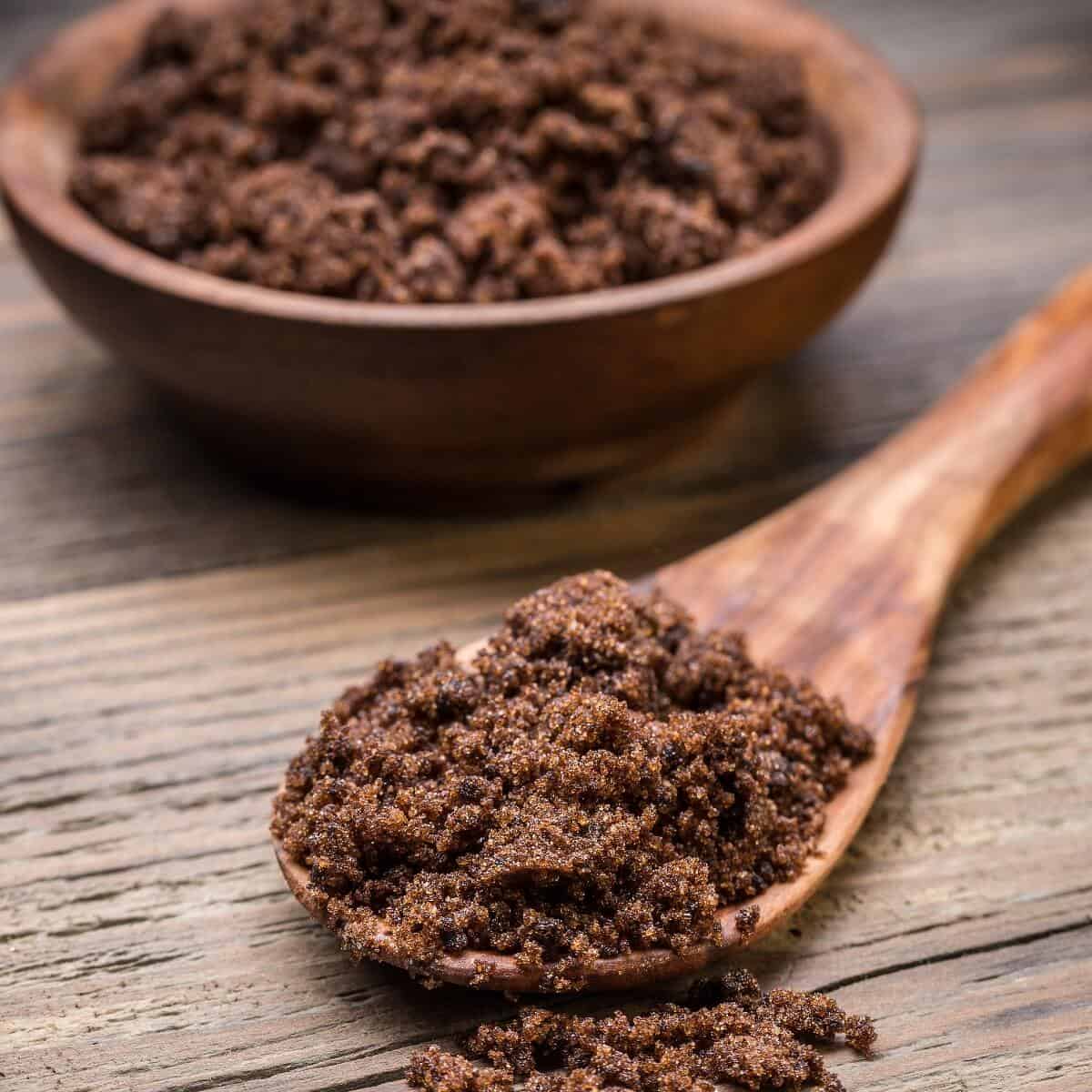
Finding the perfect muscovado sugar substitute can feel like a quest for a hidden culinary treasure. Muscovado sugar, with its rich molasses flavor and moist, sticky texture, is a beloved ingredient among home cooks and bakers alike.
Imagine this: you're in the middle of baking your favorite molasses-rich cookies when you realize you're out of muscovado sugar. Now what?
You could abandon ship, but let's be honest—those cookies won't bake themselves. Without a good muscovado sugar substitute, they simply can’t reach their full flavor potential.
Jump to:
What Is Muscovado Sugar?
Muscovado sugar is a dark, coarse, and unrefined sugar that retains much of the natural molasses found in the sugar cane plant. Known for its rich, robust flavor, it varies from light to dark brown and has a texture that's stickier than most other sugars.
Unlike its refined counterparts, muscovado sugar is minimally processed, allowing it to maintain the deep, caramel-like flavor and higher mineral content that chefs and bakers crave.
This unique quality makes it a star ingredient in a variety of dishes, both sweet and savory.
Where and How Do You Use Muscovado Sugar?
Muscovado sugar is a versatile sweetener that's particularly beloved in baking. Its moist, clumpy nature is perfect for creating rich cookies, brownies, and cakes that have a depth of flavor unmatched by regular granulated sugar.
But its applications extend beyond the dessert table. Muscovado shines in marinades, glazes, and barbecue sauces, where its dark, molasses-rich profile balances beautifully with savory and spicy notes.
It’s also a classic choice for sweetening oatmeal, coffee, and other warm beverages, giving them a comforting and complex undertone that feels like a cozy embrace.
Best Muscovado Sugar Substitutes
1. White Granulated Sugar + Molasses
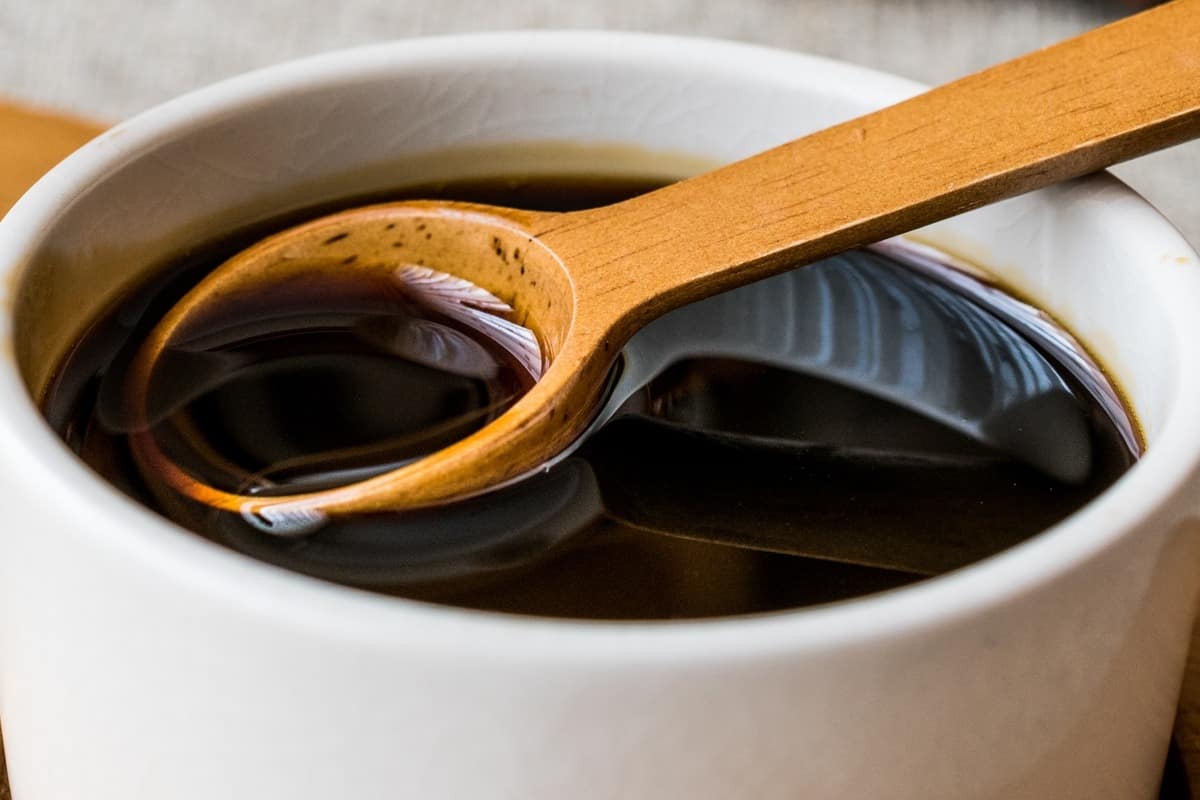
White granulated sugar is the highly refined, common table sugar used universally. Molasses is a thick, dark syrup produced during the sugar refining process. When combined, they create a complex, rich flavor reminiscent of muscovado.
Combine one cup of white granulated sugar with 1-2 tablespoons of molasses for a muscovado sugar substitute. Use a 1:1 ratio when using this duo.
Best for baked goods like cookies and cakes where the moisture and deep flavor of muscovado are essential.
2. Dark Brown Sugar
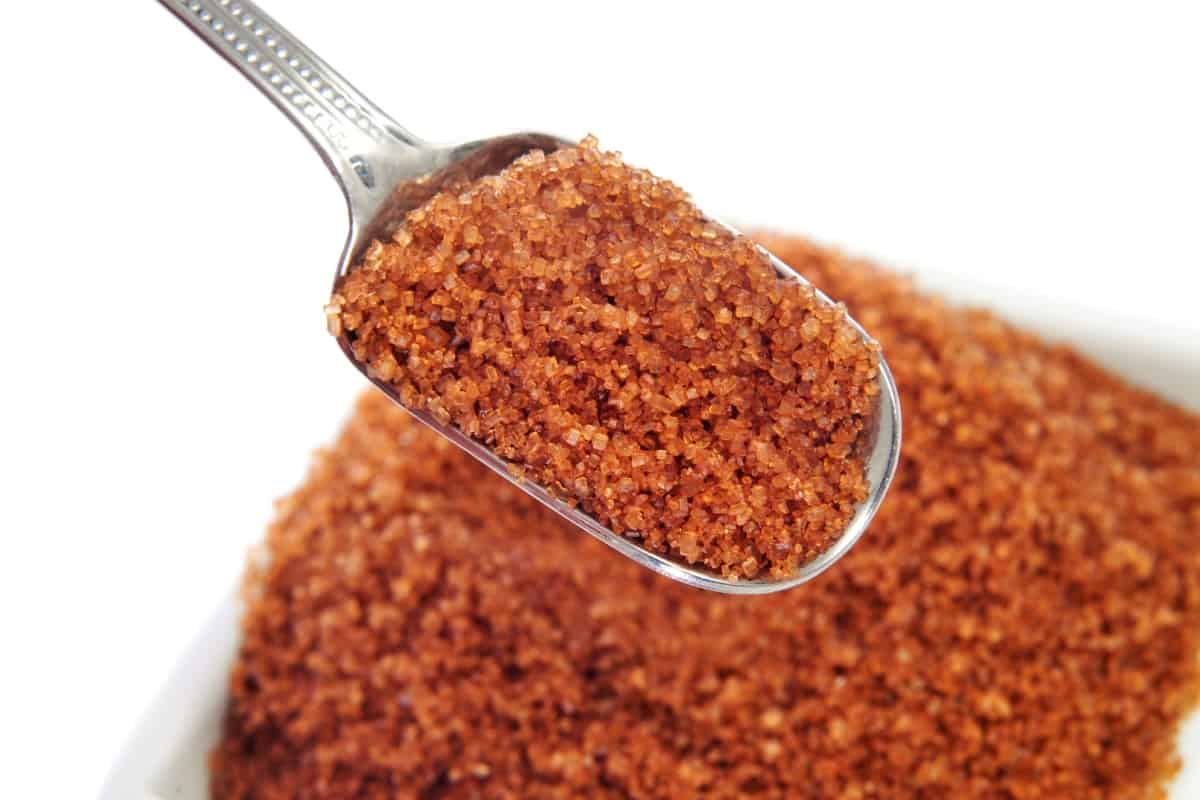
Dark brown sugar is white sugar that has had a substantial amount of molasses reintroduced, making it moist and clumpy with a deep caramel flavor. You may use a one-to-one ratio when substituting dark brown sugar for muscovado.
Best for marinades, sauces, and baking, where that rich molasses flavor is desired.
Related: 9 Best Brown Sugar Substitutes for Healthier and Tastier Treats
3. Barbados or Demerara Sugar
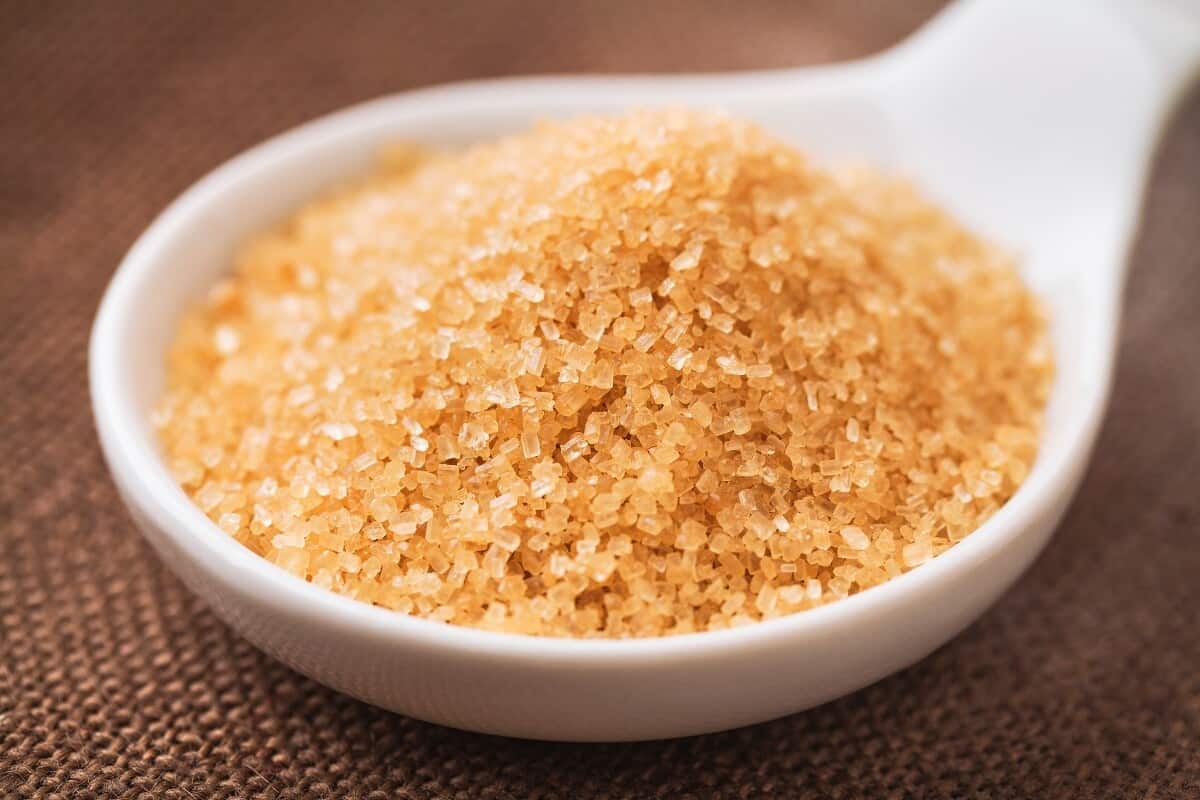
Barbados and Demerara sugars are types of raw or partially refined sugars that retain some natural molasses. They have large, coarse crystals and a mild toffee flavor.
Substitute them in a one-to-one ratio for muscovado sugar in your recipes.
Best for coffee, tea, and sprinkled on top of baked goods for a crunchy texture.
4. Palm Sugar
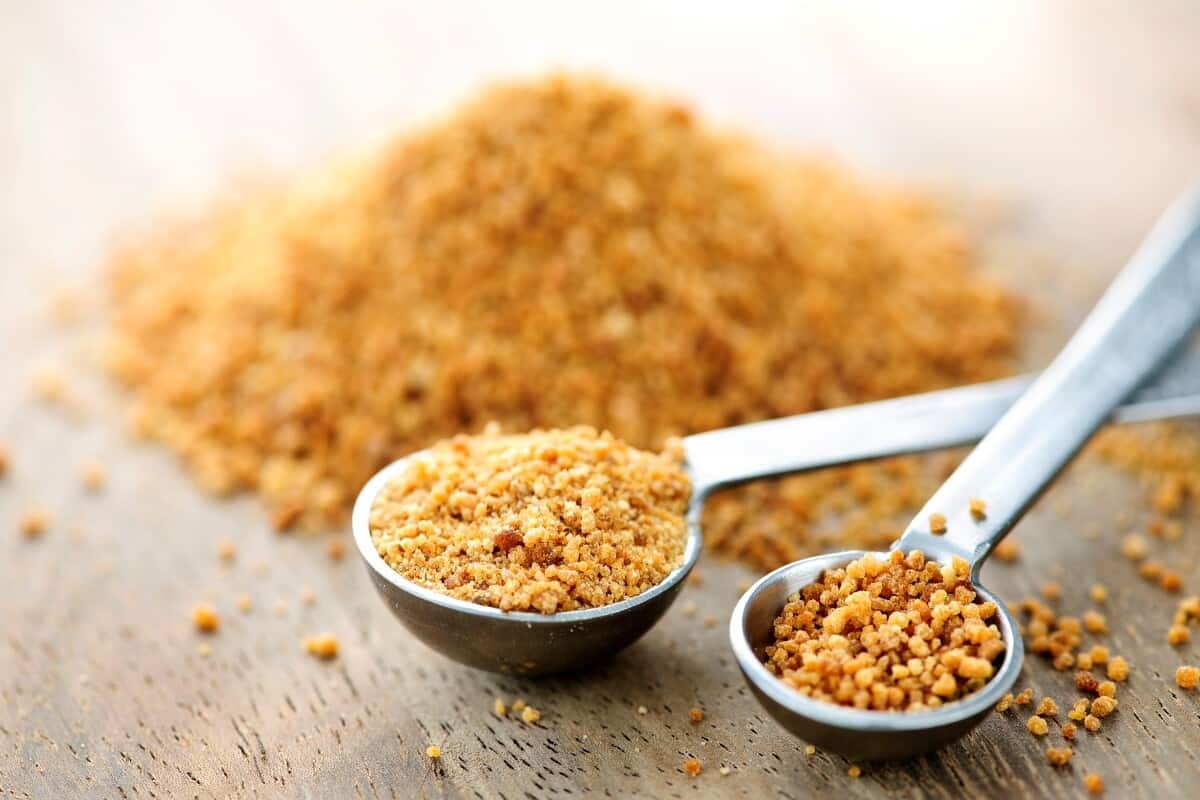
Palm sugar is derived from the sap of various palm trees. It has a granular, crumbly texture and a flavor that is subtly sweet with hints of caramel.
I typically use it in a 1:1 ratio when substituting for muscovado sugar.
Best for Southeast Asian dishes, curries, and sauces, where its natural, mild caramel notes can shine.
Related: 10 Best Palm Sugar Substitutes for Sweet Delights
5. Brown Sugar + Molasses
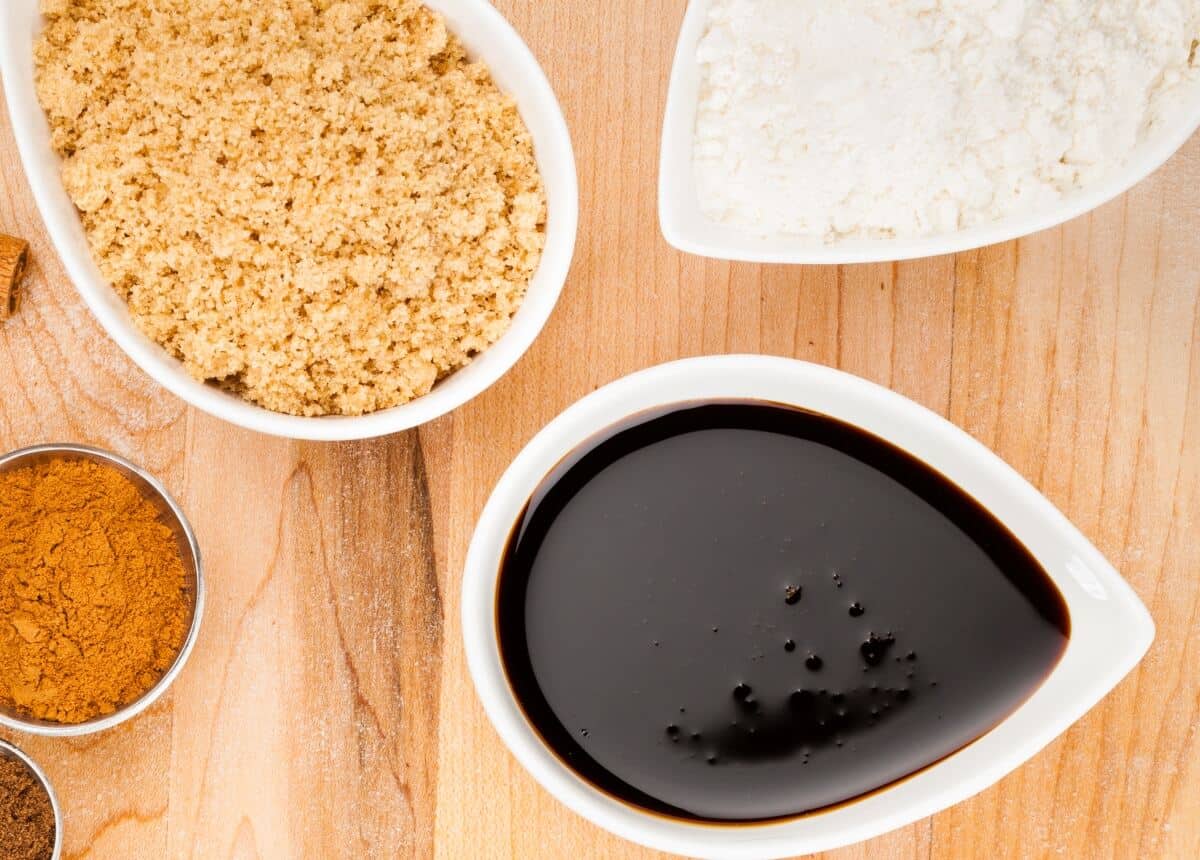
Similar to the white sugar and molasses combination, brown sugar is white sugar with a smaller amount of molasses added back. Combining it with additional molasses amplifies its deep flavors.
Mix one cup of brown sugar with one tablespoon of molasses for a muscovado substitute.
Best for gingerbread, brownies, and barbecue sauces.
6. Jaggery
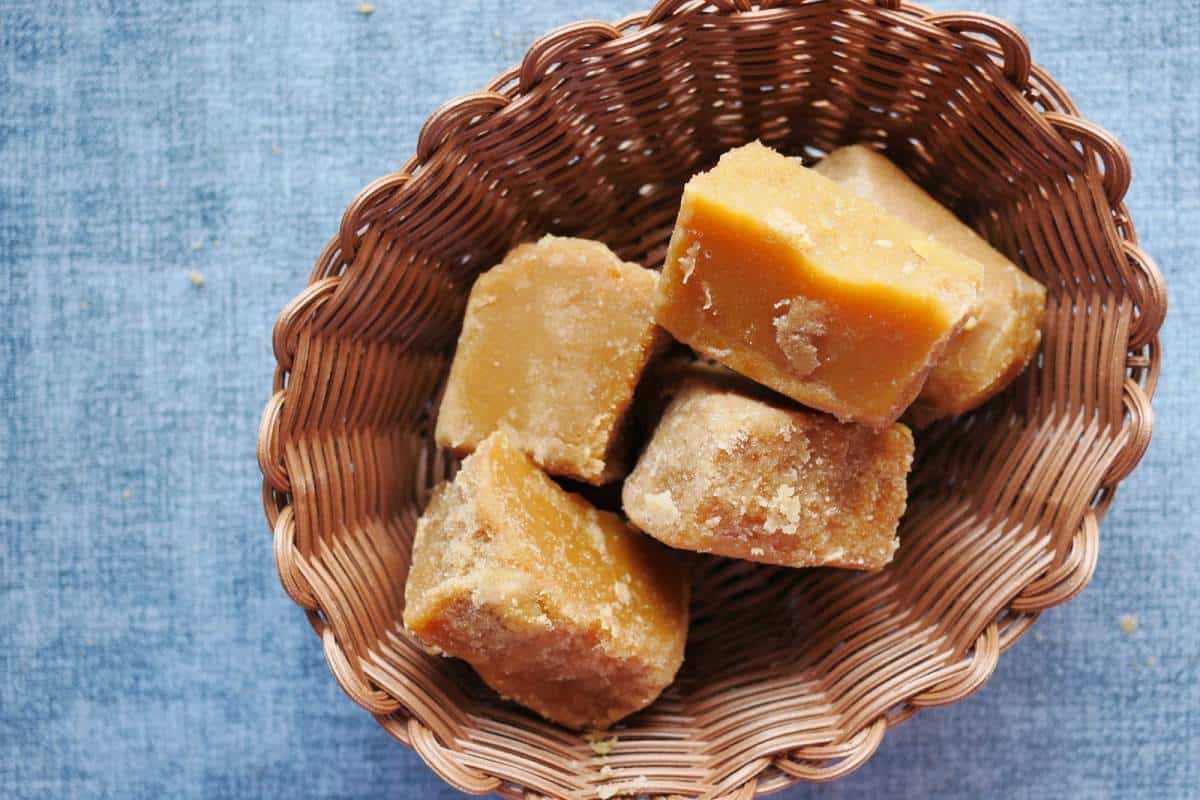
Jaggery is a traditional non-centrifugal cane sugar, solidified and unrefined. It has a fudge-like consistency and a rich, almost buttery flavor.
Start by using jaggery in equal amounts as a direct replacement for muscovado sugar.
Best for traditional Indian sweets, chai, and in various savory dishes that require a touch of sweetness.
7. Turbinado Sugar
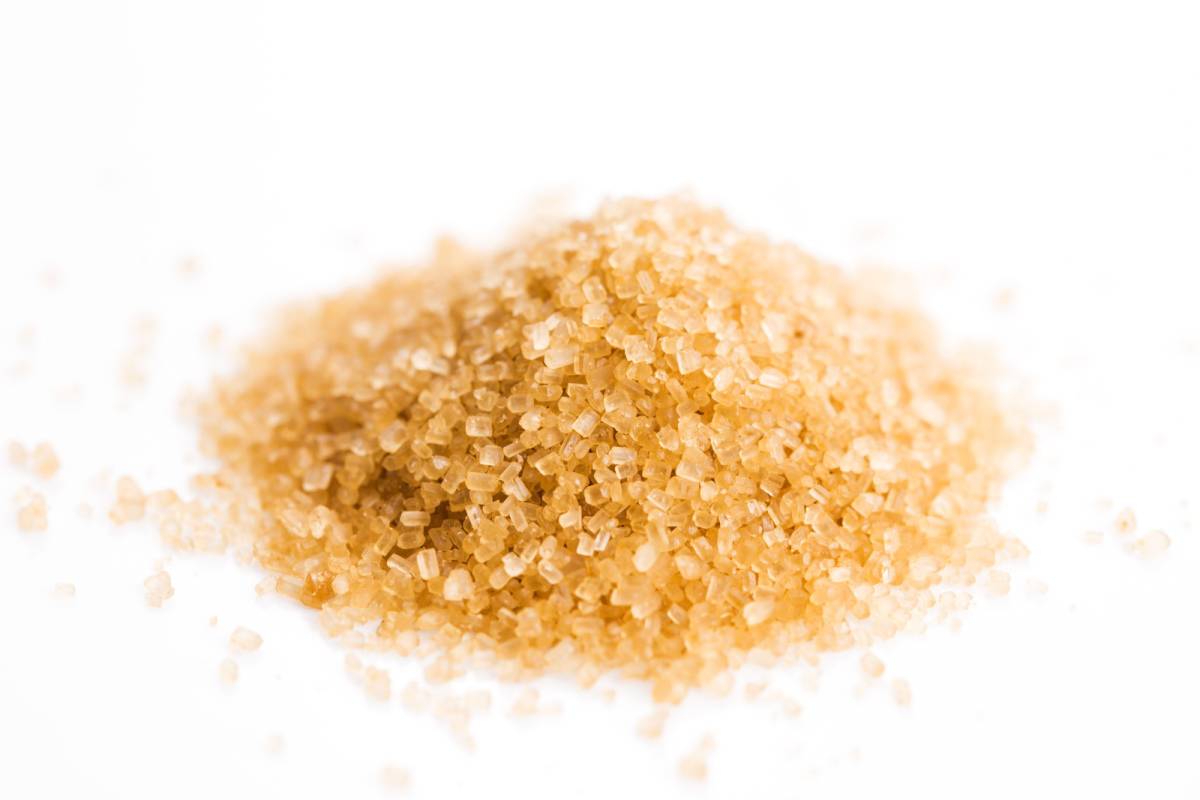
Turbinado sugar, also known as ‘sugar in the raw’, is a partially refined sugar with a light molasses flavor. It has large, amber crystals and is less processed than white sugar.
If you’re out of muscovado sugar, use it as a 1:1 substitute.
Best for sweetening beverages, sprinkling on cereals, and as a finishing touch on baked goods.
8. Panela Sugar
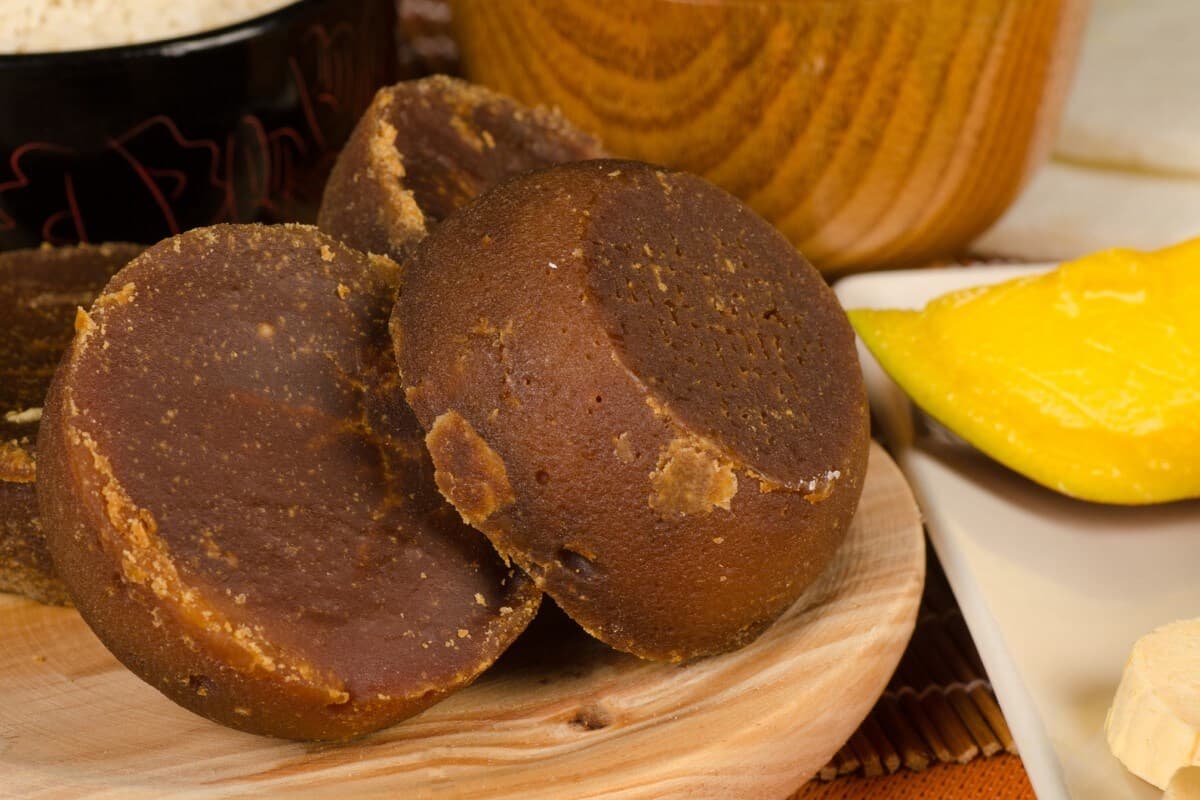
Panela, popular in Latin America, is unrefined whole cane sugar that is essentially dehydrated sugarcane juice. It is known for its rich, molasses-like flavor and higher mineral content.
For every cup of muscovado sugar in your recipe, use one cup of panela.
Best for coffee, desserts, and sauces where a deeper flavor is welcome.
9. Date Sugar
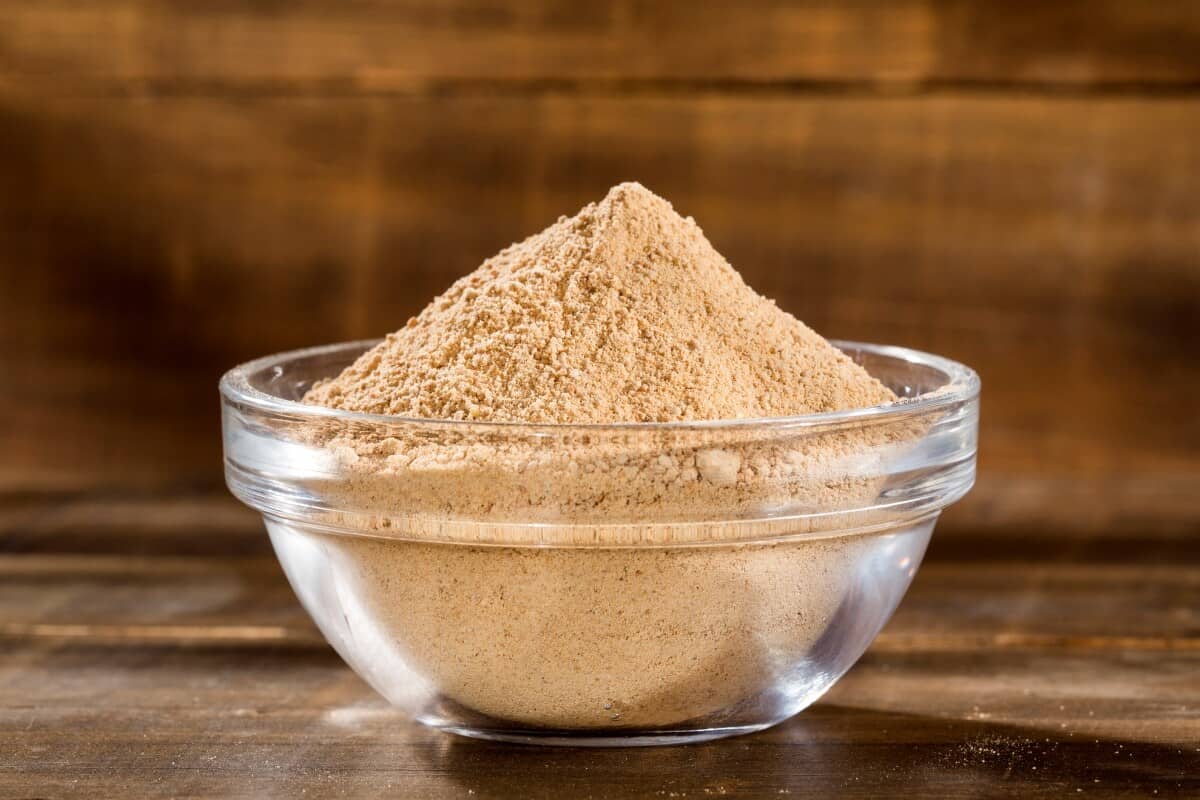
Date sugar is not actually sugar but rather finely ground, dried dates. It has a sweet, fruity flavor and is less processed than traditional sugars, retaining some of the nutrients from the whole fruit.
Use it in a 1:1 ratio as a muscovado sugar substitute.
Best for baked goods, oatmeal, and smoothies.
10. Maple Sugar
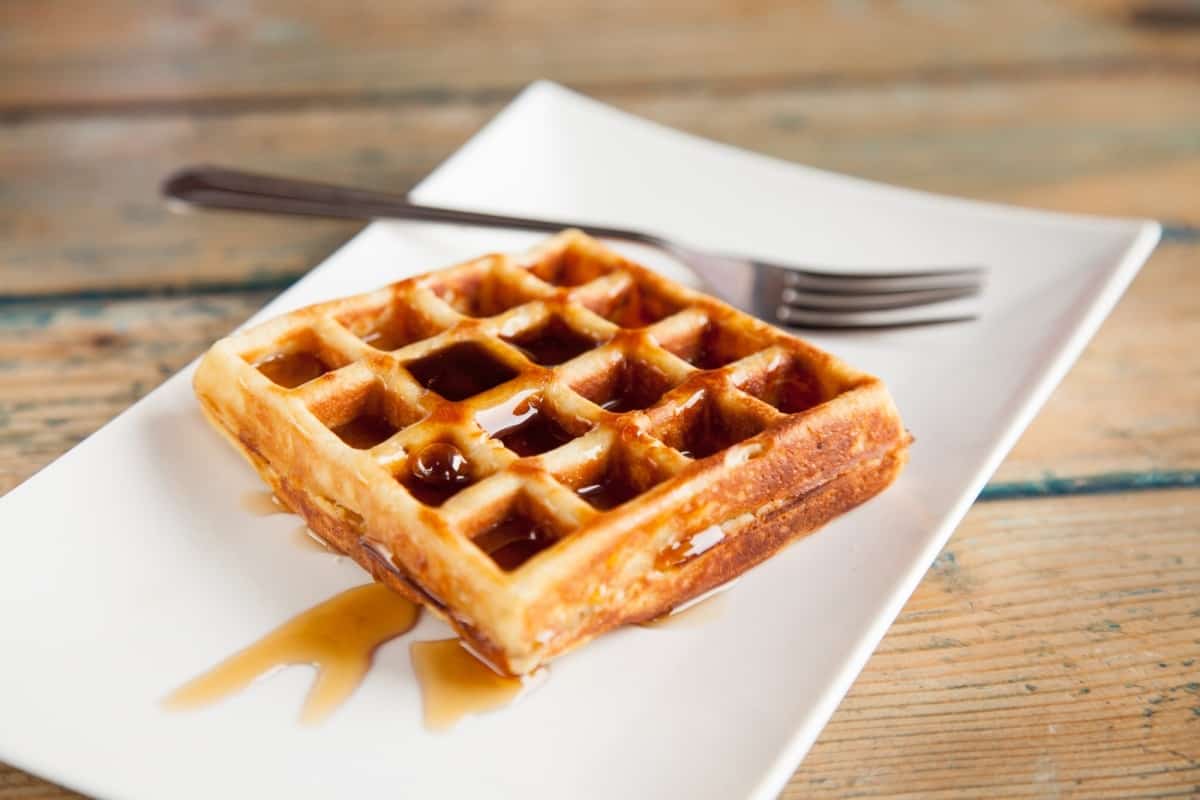
Maple sugar is made by boiling down the sap of the sugar maple tree until most of the water has evaporated, leaving behind the granulated sugar. It has a unique, rich flavor distinctively of maple syrup.
If you need a muscovado sugar substitute, use an equal amount of maple sugar for every cup of muscovado sugar.
Best for baked goods, like cookies and muffins, where its unique flavor can really stand out.
Tips and Tricks When Substituting Muscovado Sugar
When substituting muscovado sugar, consider the role it plays in your recipe. If it’s for flavor, choose a substitute with a rich, deep taste, like molasses-based sugars.
For texture, moist sugars like jaggery or palm sugar are excellent options. Remember, the sweetness level can vary between different sugars, so taste as you go and adjust accordingly.
If the substitute is granulated and the original recipe calls for a liquid form of muscovado, you may need to tweak the liquid content in your recipe slightly.
The container used for storing muscovado plays a significant role in preserving its quality too. Containers with tight-fitting lids are preferable as they prevent air exposure which could harden the dark brown sugars over time.
Glass jars equipped with rubber seals effectively block both air and moisture; however, plastic containers fitted with snap-on lids also work well if properly sealed.
Lastly, always sift or break up any lumps in granulated substitutes for even distribution throughout your dish.
Muscovado Sugar Substitute FAQs
Dark brown sugar, with its similar color and moist texture, makes a good substitute. It also has high molasses content which mimics muscovado's unique flavor profile.
Muscovado sugar stands out due to its rich molasses flavor and high mineral content. Its unrefined nature retains trace minerals like magnesium, potassium, calcium, and iron.
The difference lies in its strong molasses taste and higher nutritional value compared to refined sugars. Muscovado's distinctive flavor enhances both sweet and savory dishes.
No, they're not identical. While both are minimally processed sugars retaining some natural molasses, turbinado has less moisture and a milder taste than robustly flavored muscovado.
Congratulations, you are now well-equipped with the knowledge to master the art of muscovado sugar substitution in your culinary endeavors!
Whether you're crafting a decadent dessert or a savory marinade, this comprehensive guide on the best muscovado sugar substitutes offers you versatile and delightful alternatives.
So the next time you find your pantry missing that muscovado magic, fear not—your perfect substitute is just a read away. We invite you to explore our blog for more insightful ingredient substitutes to elevate your cooking and baking.
Have you tried any of these substitutes, or do you have another go-to option? Share your experiences and suggestions in the comments below. Your input is not just welcome—it's invaluable!
You Might Also Like:
10 Pure Maple Syrup Substitutes That Won’t Disappoint!
The Best Powdered Sugar Substitute Cheat Sheet for Home Cooks
8 Best Sugar Substitutes for Baking Success
What Is the Best Brown Sugar Substitute for Cookies?
Recipe
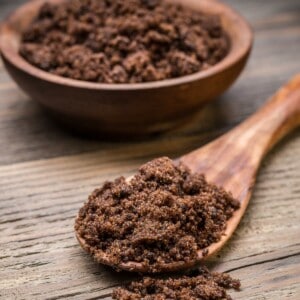
DIY Muscovado Sugar
Ingredients
- 1 cup white granulated sugar
- 1 tablespoon molasses (use 1 tablespoon for light muscovado and 2 tablespoons for dark muscovado)
Instructions
- In a medium-sized mixing bowl, measure out 1 cup of white granulated sugar. Add 1 tablespoon of molasses for a light muscovado sugar substitute or 2 tablespoons for a dark muscovado sugar substitute.
- Use a fork or a whisk to thoroughly combine the molasses with the white granulated sugar. Keep mixing until the molasses is evenly distributed throughout the sugar and the mixture is a uniform color. This might take a few minutes, so be patient!
- If you find any clumps in your mixture, use the back of the fork to press them against the side of the bowl and break them up. You want the texture to be as consistent as possible.
- Transfer your DIY muscovado sugar substitute to an airtight container. Store it in a cool, dry place, just as you would with regular sugar.
- Use this substitute in a 1:1 ratio in any recipe that calls for muscovado sugar.
Notes
- This substitute is excellent in recipes where muscovado sugar's moisture and deep flavor are essential, such as in cookies, brownies, marinades, and sauces.
- For a more intense molasses flavor, feel free to adjust the amount of molasses to taste.
You can find the video in the post above. If you don't see a video, please check your browser settings.


Leave a Reply